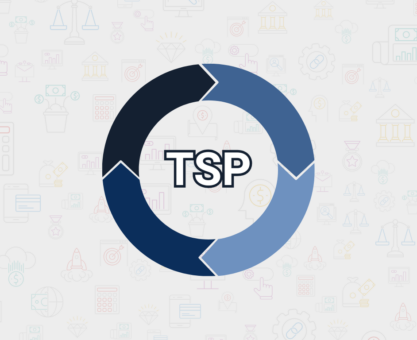Even if your retirement is a decade away, when it comes to your future financial security, it’s just around the corner. Here are four ways you may be sabotaging your federal retirement when you have 10 years to go.
Not Contributing More To Your TSP, Right Now, No Excuses
Research conducted by the Federal Retirement Thrift Investment Board (FRTIB) revealed that far too many federal workers were not contributing enough to their Thrift Savings Plan (TSP) to qualify for their 5% agency match. If this describes you, you’re walking away from free money and losing out on the compound interest it would earn. Make sure your contributions are 5% or more to earn the agency match and, if you’re age 50 or older, take full advantage of Catch-Up Contributions. (Note: the 2024 TSP Catch-up Contribution limit is $7,500.)
Not Doing Everything You Can To Pay Down Debt
Several reports confirm that Baby Boomers are carrying record-high debt into retirement while the next in line to retire, Generation X, may be saddled with even more. A high debt load in retirement may have you withdrawing more funds at a faster pace from your Thrift Savings Plan (TSP). And this could put you at risk of running out of money when you need it the most: in your golden years. With credit card interest rates outpacing historic stock market returns, eliminating as much consumer debt as possible before you retire is a top priority.
“Even worse – the older you are when you apply for LTC insurance, the more likely you’ll be turned down.”
Not Purchasing Long-Term Care (LTC) Insurance In Your 50s
An article published on Yahoo News indicates that the average cost for a LTC policy with an initial value of $165,000 (and 2% inflation growth) is considerably higher at age 65 than at age 55. Add to this LTC insurance premiums are generally higher for women at any age because they have a longer average life expectancy than men. Even worse – the older you are when you apply for LTC insurance, the more likely you’ll be turned down. Around your 50th birthday, start to shop around to get the best deal on LTC insurance possible.
Not Working With A Federal Retirement Consultant® (FRC)
Before you submit your FERS retirement application, you have a number of crucial decisions to make. Without the help of a knowledgeable advisor you may make mistakes that can reduce your federal retirement benefits, forever. Financial professionals who earn the Federal Retirement Consultant® (FRC) designation have been fully vetted, including a background check, and have successfully completed comprehensive training in all of your federal benefits. Connect with an FRC® advisor in your area today.


























